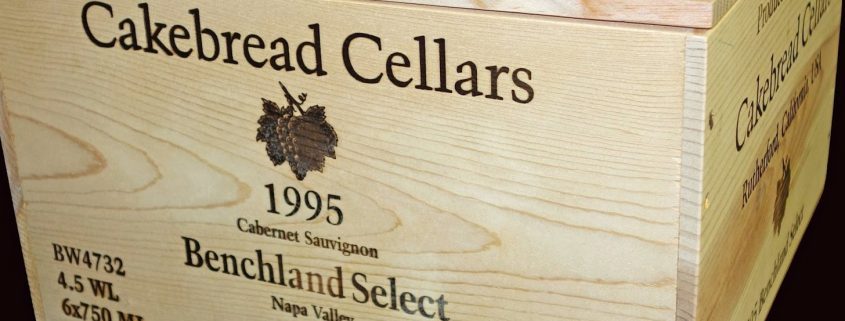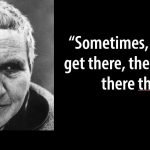An Interview with Bruce Cakebread
In the four decades since Jack Cakebread began making wine, Cakebread Cellars has established its position among the finest wines in America. Recently, MarketPoint asked Bruce Cakebread, the company’s President and COO, to share his views on the Cakebread brand.
MarketPoint: What’s your earliest memory of Cakebread being recognized that as a national brand?
Cakebread: In the early days, if I met someone in an airport, they might ask me what I did for a living. I’d tell them I worked for Cakebread Cellars, and they’d say, “Never heard of it.” A few years later, the answer would change to, “Hey, I like your Chardonnay.” We really gained national attention in the mid-’80s, when a chef who worked for the Ritz-Carlton Hotel Group, in Atlanta, fell in love with our Chardonnay and started telling other chefs, and it just grew from there. We were fortunate to gain exposure on several very nice properties, and soon, people who tried our wine and liked it began buying it by the bottle.
MarketPoint: So, was the development of the Cakebread brand a conscious effort, or did it just evolve?
Cakebread: In the 1970s, we were all just learning about wine. My father would travel two or three weeks out of the month, and my mother would run the garage, which was supporting the winery. They developed close friendships with other vintners, like Bernard Portet (of Clos Du Val), Janet Trefethen, John Wright (of Domaine Chandon), Myron Nightingale and Ed Sbragia (of Beringer), and Michael Mondavi, and they would travel as a group to talk about Napa Valley and its wines and food. Everyone had something different to say and to pour. We would make a few barrels and sell those wines and then make a couple more barrels, and sell that. So our wines and our brand just grew organically, in a very healthy and collaborative way.
In the ‘80s, the East coast – and particularly New York – was a very Eurocentric market. New York wine lists usually started with the Champagnes, and then went to the Burgundies, and then Bordeaux, and then the wines of Italy and Spain, and ended with a few domestic labels. But as the interest in California wines grew, we saw U.S. wines move to the front of the list.
MarketPoint: What does the Cakebread brand stand for today?
Cakebread: We’ve found that customers really connect with our dedication to producing quality wines. We’ve maintained the same focus throughout the years: good friends, good food, and good wine. Consistency is so important – our philosophy in how we grow our grapes, to the people at the winery and the way we make wine. When folks order a bottle of our Chardonnay, they know, with confidence, what they’re going to get. That single-minded focus, a dedication to producing reliable high-quality wines, has sustained us.
MarketPoint: Does that mean you won’t sell your juice to other makers, who might intend to produce a lower quality label at a lower price?
Cakebread: If we declassify wine, if we don’t think it meets the quality standards we’ve established for the Cakebread label, then we will sell it off. There will always be 10- or 20-dollar producers out there who will blend several declassified wines, but we don’t go down that route.
MarketPoint: Tell me this, if you could change any one thing about how the public perceives your brand, what would you change?
Cakebread: You know, and this may sound strange, but we’d be happy if everyone just knew that Cakebread is our family name. It’s amazing how many times people say, “How did you come up with a name like that?” But it’s just our family name, and we’ve always been a family business.
MarketPoint: So I have to ask, what does it feel like to have your name become a high-profile national brand?
Cakebread: We’re lucky, in that it’s always been a memorable name. I remember my grandmother saying, “Be careful not to stub your toe in elementary school, ‘cause with a funny name like yours, you’re bound to be remembered for something, and you want to make it something good.”
The name goes back to our roots. My grandfather opened Cakebread’s Garage in 1926, in Oakland, California. He and my father worked together, in auto repair, for 50 years. Grandfather also raised almonds out in Brentwood. So, agriculture and auto repair always went together in our family. The garage is what helped get the winery started for the first 10 or so years. It paid my salary, so I could be up here making wine, because we weren’t making much wine at that time, and we had to put all our chips back into the business, buying tanks and barrels and all that kind of stuff… So Cakebread’s Garage really helped get the winery started.
MarketPoint: The U.S. wine market has become much more crowded, today. What sort of brand issues does that present for you?
Cakebread: You’re right; the market has become crowded. My brother Dennis travels quite a bit through North American, as my father did before him, introducing people to our wines and telling our story. We believe it’s important to connect with our customers and enjoy our wines with them. Then they, in turn, tell their friends the Napa Valley story, and hopefully, they remember our wines.
MarketPoint: We hear you are committed to protecting the land and helping chefs around the country make better use of local food sources. How have these types of environmental and social issues helped to shape the Cakebread brand?
Cakebread: I’ve found that a lot of family businesses, regardless of the industry, seem to understand the need to give back to their communities. Maybe it’s because family businesses are always looking forward to the next generation, trying to build on the foundation they have been given and pass the business along stronger than they found it.
One of the biggest issues we all face is the footprint we leave on our communities, and the earth itself. Napa Valley has always been focused on protecting the land. The first agricultural preserve (to push back against suburban sprawl) happened here in Napa Valley, back in 1968. Today’s Napa Green Land and Napa Green Winery programs are third-party certifications that validate that commitment.
MarketPoint: Cakebread Cellars has experienced exponential growth over four decades. What steps have you taken to maintain your brand integrity?
Cakebread: The whole management team is focused on our values and our guiding principles – not just for ourselves, but for everyone who works at the winery. That way, when anyone is faced with a difficult decision, the guiding principles will point the way.
It helps, too, that we’ve grown up with a great group of people. Julianne Laks, who recently celebrated 26 years with us, took over my responsibilities as winemaker back on 2002. Brian Streeter, who’s coming up on 24 years, is our culinary director; Brian took his inspiration from Jack and Dolores [Cakebread] and has moved wine and food to a new level – in fact, he just won an award for the latest Cakebread Cellars cook book! Our cellar master, Brian Lee, who joined us right out of Cal Davis, is celebrating his 25th year, this year. And we stay in close touch with a number of people who retired after 20-plus years. These longtime employees are responsible for passing down stories from the early years to the younger employees, explaining the decisions we made and how they impact us today.
And finally, we have a great group of growers, and a great collection of vineyards, that produce consistent, high-quality grapes.
So, when you combine the right values and the right people and the right vineyards, you get a culture and a product that promote quality.
MarketPoint: How do you keep the stories and the culture alive?
Cakebread: We talk about them in departmental meetings; at quarterly company-wide meetings, we ask different managers to talk; and once a year, we hold a half-day review of our annual plans, so that everybody knows what each department is doing and what the companies overarching targets are for the upcoming year. We also review the mission statement, and our values and guiding principles. It’s all part of a program to build stronger managers.
MarketPoint: What lessons could CEOs in other businesses learn from the Cakebread experience?
Cakebread: One of the challenges of running a family business is that the family members can only do so much. We’ve found it essential to build management skills in the workforce, from the top down, so that employees can manage better, from the bottom up.
Clear job descriptions help hiring managers know what skills to look for. A good interview process, including strong interview questions, facilitates good hiring. Effective communication helps employees develop and move up through the organization, or if they choose to leave, they at least take improved communication skills with them. As employees move into management, we continue to develop their management skills, because management skills are not innate. The three core skills we value most are trust, mutual respect and open communication.
MarketPoint: There’s no doubt that Cakebread Cellars has developed a world-class brand. What advice would you give other business owners, as they strive to develop their brands?
Cakebread: Have a strong mission statement, and never let anyone put it in a drawer. Communicate your values and principles throughout the organization, so that when things get tough, employees can make the right decisions on their own. Hire good people and make sure they have a safe, healthy workplace environment, so that when they wake up in the morning, they want to come to work, and they enjoy the people they’re working with. You do that, and your employees will run through brick walls for the winery.
MarketPoint: At MarketPoint, we often talk about brand development along a continuum, from the first articulation of your brand, through development of your core values, to a sustainable brand promise, and a program to transform the organization through brand. How have you managed the Cakebread brand along that continuum?
Cakebread: I’m very proud of the way our employees focus on customer service. We recognize that nobody’s perfect, and we all make mistakes, but we try to keep this top-of-mind throughout the company. It’s just not the front-line people in the tasting room or answering the phone. You’ll find the same commitment from the cellar to the kitchen to the administration. Everyone has to understand that everything they do affects the customer experience, and every customer experience affects our brand.
MarketPoint: Bruce, I really appreciate your candor and your willingness to share your experience with our readers. If you could leave our readers with one last thought, what would it be?
Cakebread: Drink Cakebread wine!
No, seriously, the Cakebread brand was built on consistency. From the growers to the wine makers, to our go-to-market plans, and to the way we run our daily business. Everything needs to be in alignment. We are very, very fortunate to be able to do that. And we are very thankful for our customers. They are the most important people in our world.



